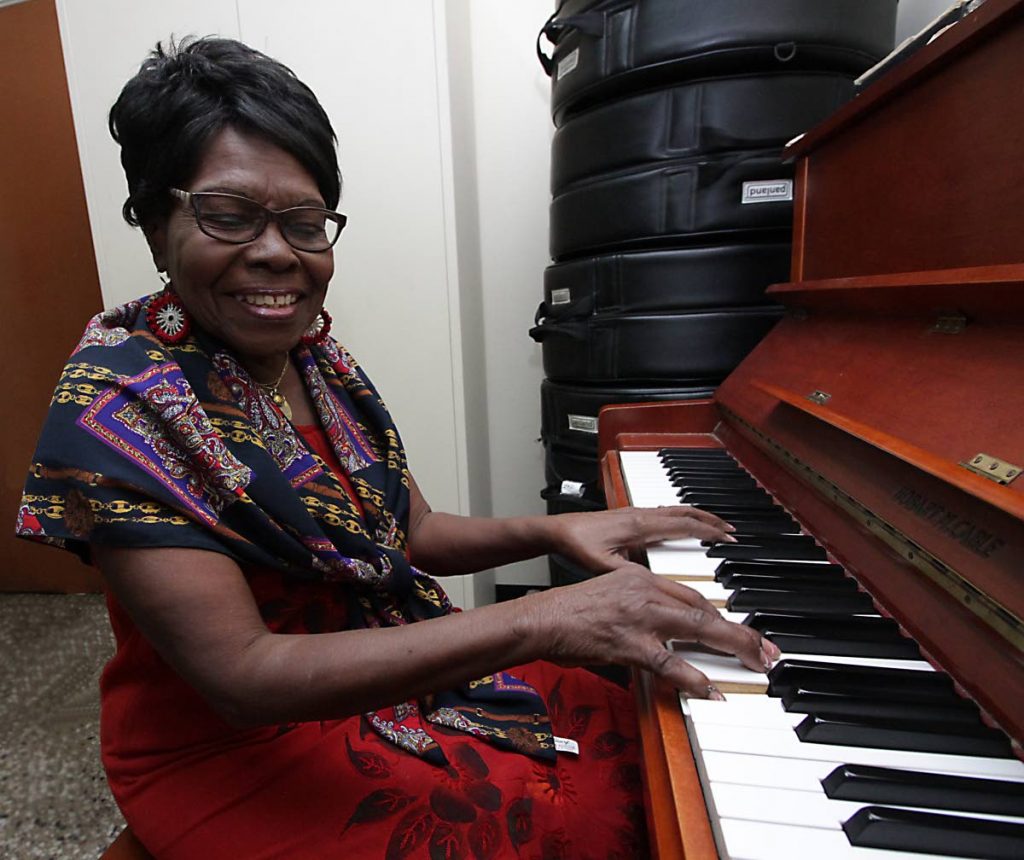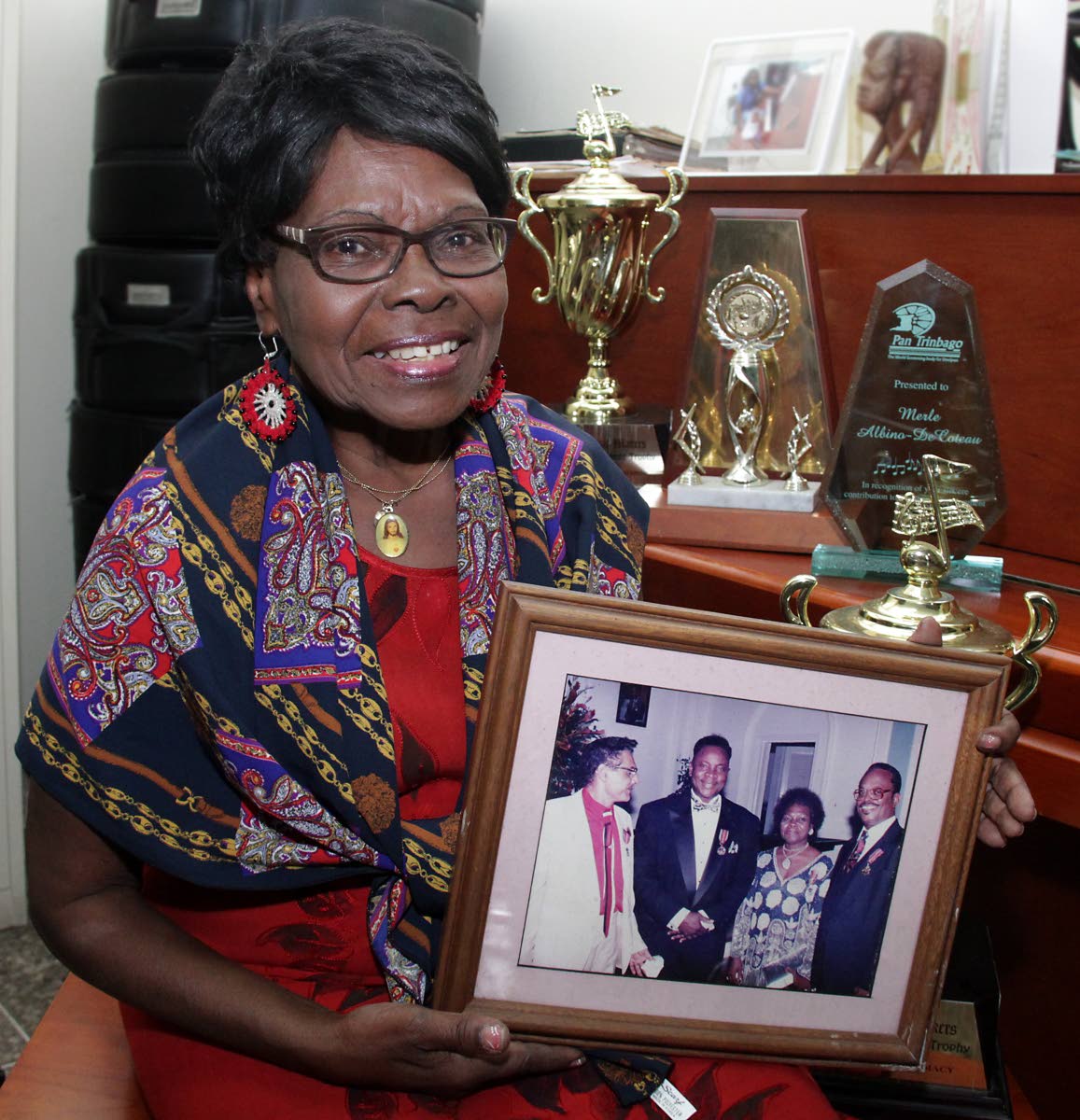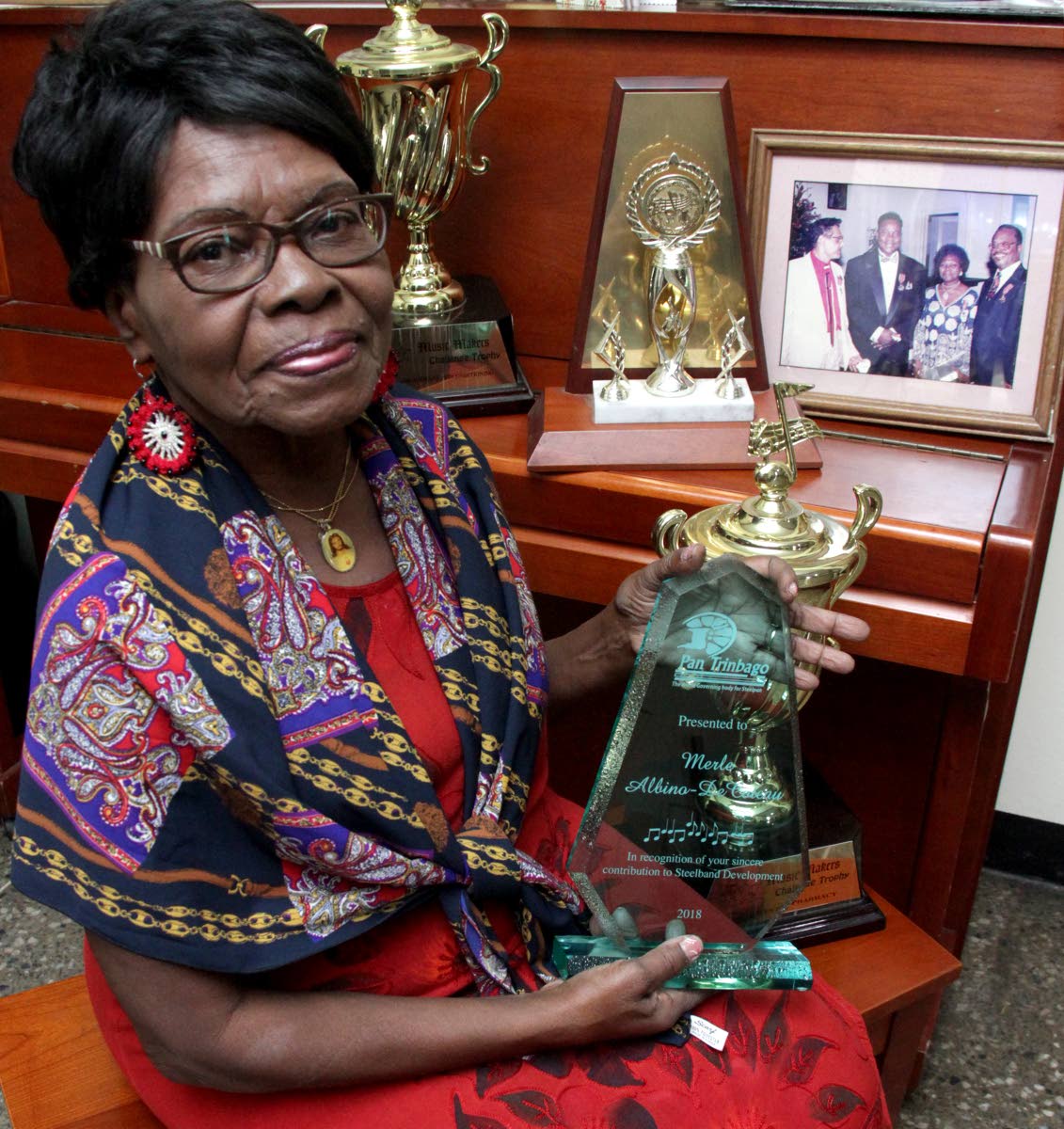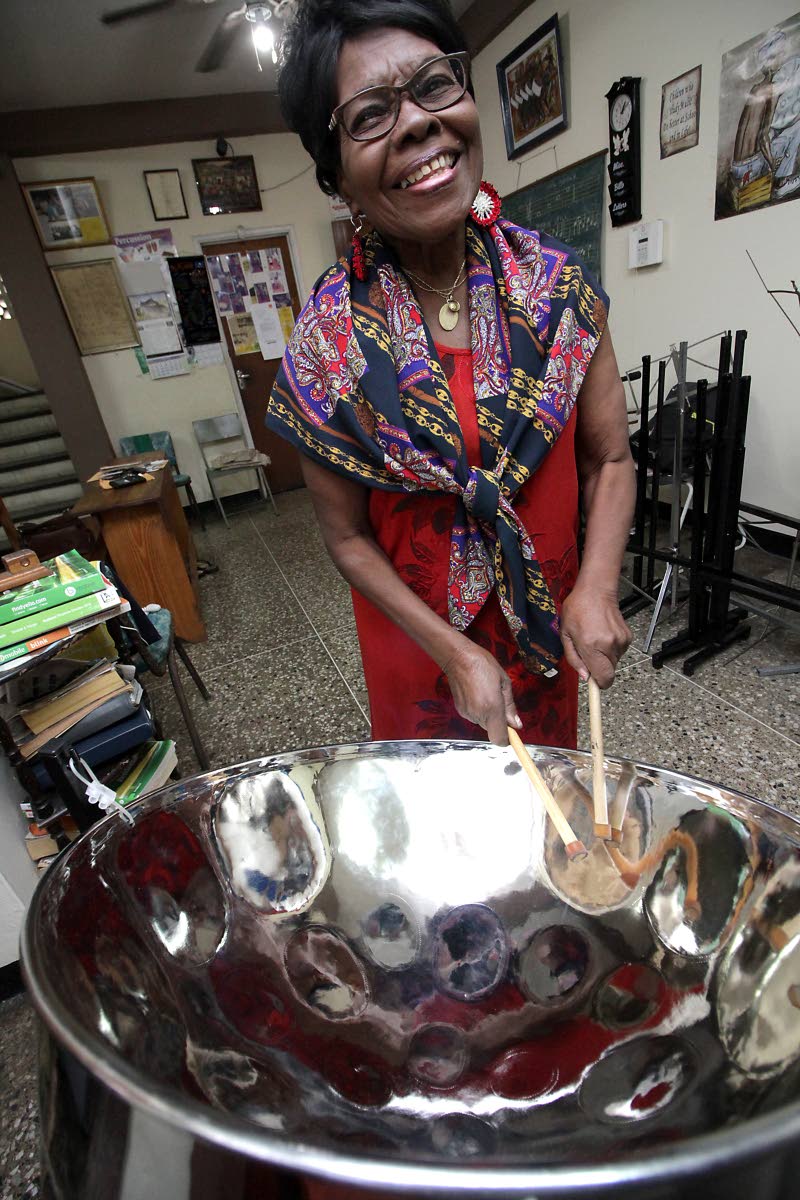Merle Albino-de Coteau: First woman to arrange for Panorama

MELISSA DOUGHTY
MERLE Albino-de Coteau’s wall is filled with pictures and memorabilia. She smiles while standing with the Mighty Sparrow. She received her Humming Bird medal in 1993, the same year he received his Chaconia Medal Gold for calypso.
A chart detailing the world’s great composers from the Renaissance to the modern era also hangs on the wall of her Eastern Main Road, Laventille, home. There are positive sayings for her Music Makers students, some of whom are taking part in this year’s Music Festival. These are all testimonies to a life in music.
Albino-deCoteau is the retired director of culture in the Ministry of Community Development, Culture and Women’s Affairs. She is also a graduate of Mc Gill University, Canada; the University of the West Indies; and the University of Trinidad and Tobago having read for a Bachelor’s, Master’s, the LTCL and ATCL diplomas in piano teaching and a Dip Ed. She has spent over 70 years (she is in her late 70s) in music. And what would have been her master’s thesis is now being turned into a book about the contribution of women to the steelband movement. Albino-de Coteau had done a paper on women in calypso for her Dip Ed and so was advised to elborate on that for her master’s thesis instead of the work she had already done on women in steelpan.
Albino-de Coteau can boast she has educated generations about music, but especially about the pan. One of her former students being the reigning Panorama arranger, Duvone Stewart, whom she described as being “humble.”
She has also adjudicated pan competitions, including Panorama, for more than 40 years, locally, regionally and internationally. Her decades of work in pan also brought her into contact with other women in pan including Jocelyn Pierre, Hazel Henley, Esther Batson (mother of Dwan Batson) and Louise McIntosh.
In Shannon Dudley’s book Music from Behind the Bridge: Steelband Aesthetics and Politics in Trinidad, she was quoted as saying, “Though the panyard was clearly viewed as an inappropriate environment for women in the 1940s and 1950s, there were a handful even then who played alongside the men, and there were others who formed steelbands of their own.”
Albino-de Coteau’s story is referenced in this book, which also describes her as being the first woman to arrange for a steelband in Panorama, in 1972.
She tells how she got into pan: “There was a band two houses from us here. There is an empty lot there and that band was called Torrid Zone and it was captained by a man called Sonny Charles. Sonny was reputed to have beaten 13 men at one time, so he was nicknamed ‘13s.’
“So you could imagine how my parents did not want us to be associated with the steelband. In those days there were a lot of violent clashes etc.
“My parents were musicians as well. My father (Martineau Albino) came from Venezuela, so we had that Spanish tradition of parang. My mother (Agatha Albino) was the lead singer in the Sangre Grande RC Church. Music was always part of our upbringing.”
She remembered her brothers (Aldwin and Martin Albino) would steal away to the panyard, much to the displeasure of her parents, particularly her mother.
When Torrid Zone changed hands, it became known as Savoys and was eventually sponsored by Chase Manhattan Bank.
She recalled, “There was the music festival and my brother was one of the five finalists. The five finalists were Pan Am North Stars, Guinness Cavaliers, Starlift, Synco and Savoys. My brother Martin was the captain and arranger of the band at that time. In 1968, my brother was sent to New York through Chase Manhattan...Just after he came back from there in 1970 they (her brothers) migrated.
“So...the captain of Savoys came and he said ‘We want another Albino to continue the tradition of the band. We have no arranger now.' They came for me to go.
"You could imagine my mother’s displeasure. She did not want my brothers in the band, much more me..."
Nevertheless, when the band captain came and asked her, she took up the challenge right away. She was then only in her 30s.
Before that, Albino-de Coteau had experienced the pan through her brothers, who often came to her to play classical music for them on the piano. She was a pianist and so “when they would be going to the panyard, they would ask me to play – because I am really a pianist. Before they went to do their arranging, they would ask me to play certain classical tunes.”
Her formal training made it easy for her to transition to becoming the arranger for Chase Manhattan Savoys.
At the time, it was novel to have a female arranger. “We did not get the respect from the men because they always felt it was a male-dominated arena.”
The first thing she did was a classical piece she took and arranged for the Bomb competition. The band came third.
“They were very happy when they came third in the Bomb competition in 1973 and there was a church music festival before that in 1972 and again we came third in that. I arranged a piece by Handel.”
The achievements gained her the band’s confidence.
When she started arranging in 1972, she said, she was sent to Mt Hope Junior Secondary School. “Right away at Mt Hope, getting involved with steelband here, I not only started teaching children to sing but I also started a steelband at Mt Hope.”
She added when Pan Trinbago realised she was arranging for Savoys and Mt Hope, the organisation thought right away that it should call her on board as an adjudicator. Since then, Albino-de Coteau has spent more than 40 years judging pan competitions.
This not only gained her a national award but she was also inducted into the Sunshine Awards Hall of Fame in 2012. To add to her awards, this year, Pan Trinbago also gave her an award for her contribution to pan.
Through her music school, Music Makers, Albino-de Coteau has mentored many more, including assistant music professor Mia Gormandy, Duvano Garnes, Simeon Superville, the late Roland Gordon and Trevor Valentine and pannists Ricardo Jerome and Wentworth Richardson.
But when she started Music Makers she did so to get her only child, Michael de Coteau “more involved in music.”
“I started teaching a few children around here music. One of those was Roland Gordon (father of two-time Calypso Monarch Chuck Gordon) who went on to become the musical director of Malick Folk Performers.”
Her son, she said, “Very easily fell into the playing: he played the tenor with me. He also played the guitar very beautifully and would come first on Hazel’s (Hazel Ward-Redman's television talent show) Twelve and Under and teen talent shows...”
She has seen and been a part of both the evolution of pan music and Laventille. While she is saddened by what is happening in the area in which she was born, raised and continues to live, Albino-de Coteau still teaches music to the area’s youth, using it as a catalyst for change.
As for pan music, she believes the new crop of arrangers is doing “a lot of nice work.” She described this year’s Panorama as having been a very good year.
While she said pan could have been "further along," she believes several factors impeded its further development, among them pan coming from the grassroots. “It is only when a certain set of people with a certain respectability came into pan, then it got its recognition. Coming from the grassroots it was not recognised,” she said.
Albino-de Coteau’s fingers move deftly over the keys, playing Abba’s I Have a Dream. She hopes to continue her live commentary on radio for various stages of Panorama, and that music will always be a part of her life.




Comments
"Merle Albino-de Coteau: First woman to arrange for Panorama"